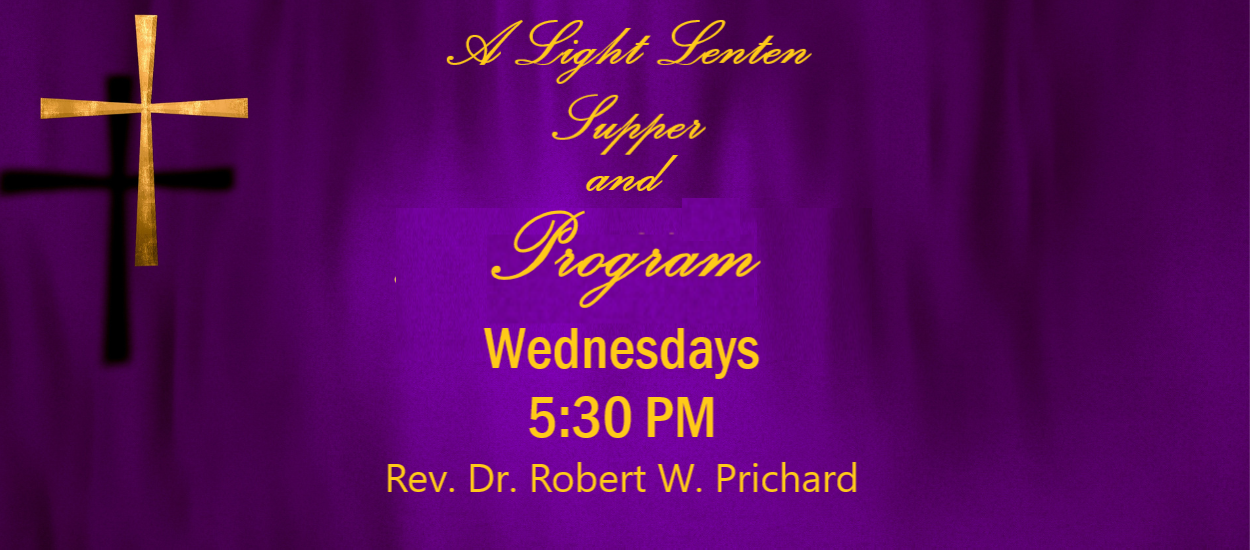Light Lenten Dinner and Progrm
Hosted by the Men's Brotherhood
Wednesday, April 2, 20255:30 PM
Christ Church Parish Hall
56 Christchurch Lane Chapel
Saluda, VA 23149
› Driving Directions
 During the first five weeks of Lent, the Rev. Dr. Robert W. Prichard, our priest associate, will be offering reflections on the Book of Common Prayer (1979) following the weekly Lenten dinners on Wednesdays at 5:30 P M. In each session, Bob will look back on the 16th century editions of the Book of Common Prayer (1549, 1552, 1559) that provided the basis for a continuing prayer book tradition and reflect on the ways in which the current prayer book edition of 1979 reshaped that tradition. Bob, who served as the secretary of the Joint Committee on Prayer Book, Liturgy, and Music at the Episcopal Church’s General Conventions of 2015 and 2018, will also share his thoughts on the ways in which the prayer book is being supplemented and revised in the 21st century.
During the first five weeks of Lent, the Rev. Dr. Robert W. Prichard, our priest associate, will be offering reflections on the Book of Common Prayer (1979) following the weekly Lenten dinners on Wednesdays at 5:30 P M. In each session, Bob will look back on the 16th century editions of the Book of Common Prayer (1549, 1552, 1559) that provided the basis for a continuing prayer book tradition and reflect on the ways in which the current prayer book edition of 1979 reshaped that tradition. Bob, who served as the secretary of the Joint Committee on Prayer Book, Liturgy, and Music at the Episcopal Church’s General Conventions of 2015 and 2018, will also share his thoughts on the ways in which the prayer book is being supplemented and revised in the 21st century.
Please join us for the Lenten dinner and for the education presentation that will follow. Individual topics will include:
April 2. The Daily Office and the Lectionary. Prior to the Reformation, most lay persons had no exposure to the Daily Office in their local parishes, though they could witness the service by visiting monastic institutions. The first prayer book created a simplified daily office that involved two services (Morning and Evening Prayer) rather than the eight services celebrated by monks and nuns. The prayer book directed that all clergy read the services in church daily and prescribed a lectionary that directed reading of the entire Psalter each month and of most of the rest of the Bible each year. American Episcopalians changed the expectation of that frequency after the American Revolution and, for a century following the Civil War, read Morning Prayer chiefly as a Sunday service that alternated with the Eucharist. The 1979 prayer book attempted to restore the Daily Office as a weekday service, reserving Sunday for celebrations of the Eucharist. Some in the 21st century are rethinking that change in the light of declining church membership.




